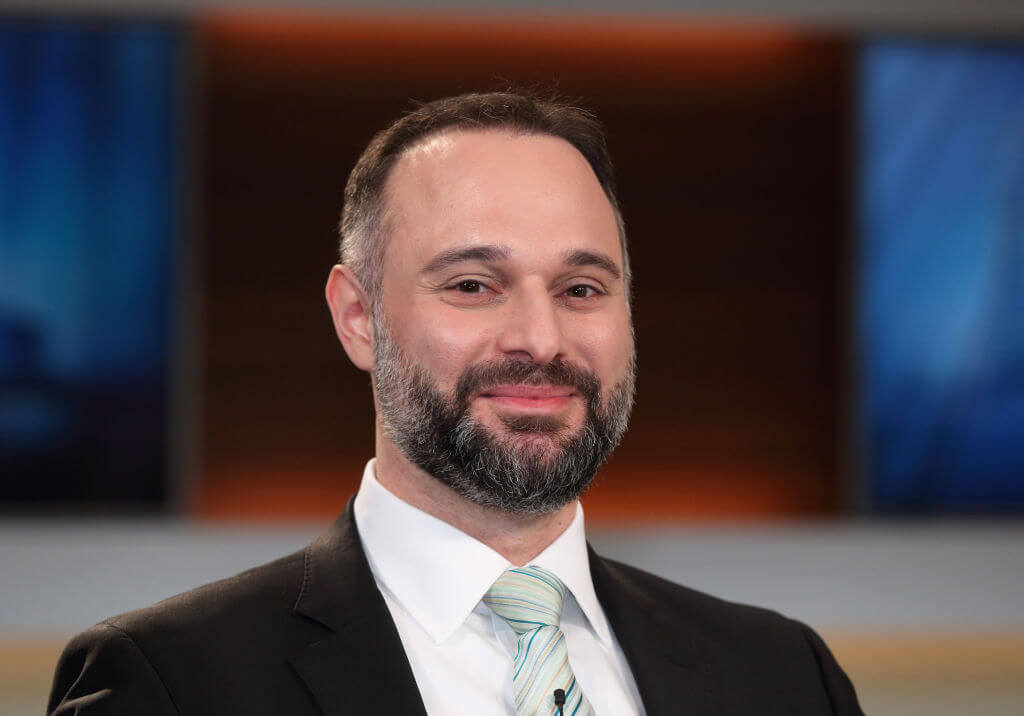Two executives from a Turkish-Islamist political association in Germany that is in the process of establishing a party named Demokratische Allianz für Vielfalt und Aufbruch (Democratic Alliance for Diversity and Awakening, or DAVA) have denied claims that the new party is affiliated with Turkish President Recep Tayyip Erdoğan and his party, BBC Turkish reported.
A report by the German Bild am Sonntag newspaper on Sunday about the establishment of DAVA, close to President Erdoğan, that will run in the upcoming European Parliament elections has led to alarm in the country, with many interpreting it as an attempt by Erdoğan to expand his influence on the Turkish population there.
Some German politicians have expressed concerns that the new party will further stoke divisions in the country among various religious and ethnic groups and will be another radical party just like the far-right Alternative for Germany (AfD) party. They said the new party will also increase Erdoğan’s influence over the Turkish population there and promote his agenda.
DAVA Chairman and co-founder Teyfik Özcan and Fatih Zingal, another co-founder and deputy chairman of DAVA, told BBC Turkish that the new party will not only appeal to people with Turkish roots in Germany but to all religious and ethnic minorities who feel under-represented in German politics while denying claims about any links to Erdoğan and his Justice and Development Party (AKP).
“DAVA is a German party,” Özcan said, adding that people in the alliance are not only those supporting Erdoğan and the AKP but that there are also other immigrants from various backgrounds and views.
He said they may have similar views on some issues with the AKP but that it would be “wrong and inappropriate” to describe DAVA as an “offshoot” of the AKP.
“My homeland is Germany, not Turkey. We need to deal with our problems on our own from now on. For us, Turkey is the second homeland. My children, our grandchildren were born here. They see Germany as their homeland. We need to make a decision for their future now,” said Özcan.
According to Zingal, a lawyer who had been a member of the Social Democratic Party (SPD) for more than 30 years and recently resigned from it, DAVA is not an “offshoot” of the AKP in Germany and those claiming the opposite have a “nonsense approach.”
He said a bill approved by the German parliament on January 19 that will open up the possibility of dual citizenship to swaths of the population and reduce the time needed to qualify for naturalization has led to “fears and panic” among the present political parties as the new citizens will have a right to vote.
There are currently 2.5 million Muslims in Germany who have a German passport and are eligible to vote in the elections. With the adoption of bill, another 2.5 million Muslims may acquire German citizenship, which will increase the number of Muslim-German voters to 5 million.
DAVA officials have also rejected claims that the party is funded by the Turkish government. Zingal said their only source of revenue is membership fees and donations from people.
Despite the efforts of DAVA executives to distance themselves from Erdoğan and the AKP, they do not avoid publicly supporting the Turkish president.
Erdoğan in Deutschland
Erdoğan: Sehr souverän, direkt, benennt seine Forderungen und Haltung zu Gaza und Israel ohne Zurückhaltung sehr pointiert.
Scholz: eher zögerlich, liest seinen Text ab, meidet Konflikte, redet nicht „Klartext“, wie gefordert.
Erdoğan dominiert klar!
— Fatih Zingal (@FatihZingal) November 18, 2023
For instance, Zingar posted a tweet on X about a meeting between Erdoğan and German Chanceller Olaf Scholz during Erdoğan’s visit to Berlin in November, describing Erdoğan “very confident, direct, expressing his demands and stance on Gaza and Israel very pointedly without holding back,” while he described Scholz as “rather hesitant, reading from text, avoiding conflicts and not speaking ‘plainly’ as required.
“Erdoğan clearly dominates!” he tweeted.
EP elections
Bild am Sonntag also reported that DAVA was planning to run in the European Parliament (EP) election to be held in Germany on June 9.
DAVA does not yet have the status of a “political party” according to German law; hence, its founders are calling it an alliance or political association for the time being. For the alliance to be able to run in the EP election, at least 4,000 signatures have to be collected across Germany.
Zingal said the alliance wants to run in the EP election and will complete the process of its establishment as a political party following the elections at the latest.
DAVA has recently announced four candidates who it plans to field in the EP election. Among them is Dr. Ali İhsan Ünlü, former secretary-general of Turkish-Islamic Union for Religious Affairs (DİTİB) and Dr. Mustafa Yoldaş.
DİTİB runs more than 900 mosques in Germany and frequently faces accusations of acting as the long arm of Erdoğan in the country.
He said DAVA aims to “fill a political gap” in Germany and “be the voice of the Turks, Muslim communities and other minority groups” there.
Özcan said DAVA’ s aim is to take part in the parliamentary elections in Germany in 2025, adding that the current number of lawmakers in the German parliament with Turkish roots is insufficient.
He said although Turks in Germany are successful in many fields from the arts to medicine, they are weakly represented in politics and DAVA wants to increase their representation.
There are around 3 million people in the country who are Turkish or have Turkish roots. Among them, 1.5 million are eligible to vote in Turkish elections.
Erdoğan, who is very popular among the Turks in Germany, received an overwhelming 65.4 percent support among Turkish voters residing in Germany in the presidential election held in May.

